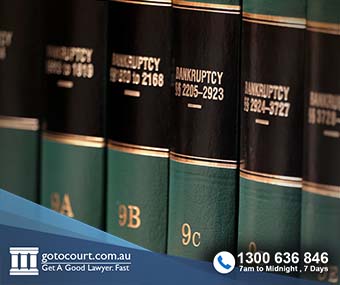Neighbourhood Disputes (Tas)
Neighbourhood Disputes (Tas)
Neighbourhood disputes commonly arise about issues such as fences, pets and excessive noise. These disputes can often can be resolved informally by talking to the neighbour and letting them know when their actions are affecting you. When this is not possible, the dispute may need to be taken to arbitration, to a Tribunal or to a local council. This article briefly outlines the procedures for dealing with different types of neighbourhood disputes in Tasmania.
Fences
Neighbourhood disputes relating to fences in Tasmania are governed by the Boundary Fences Act 1908. That act sets out the procedures to be followed when a boundary fence needs to be put up, repaired or upgraded.
Owners of adjoining land that is not separated by a fence must generally share the cost of putting up an adequate fence. If a boundary fence is inadequate or needs repairing, the owners of the adjoining properties are usually equally liable for the cost of repairing it.
If a person wants to compel their neighbour to contribute to the cost of a fence, they need to serve the neighbour with a Notice to Fence or a Notice to Assist in Repairing a Fence. If a fence is erected without service of either of these documents, the adjoining landowner cannot be required to contribute to the cost of the fence.
If a person is served with a Notice to Fence or a Notice to Assist in Repairing a Fence that they do not agree with, they have 21 days to object to the proposal. The objection must be made in writing and served on the person who served the Notice. If an agreement cannot be reached the matter must be resolved through arbitration.
If a Notice to Fence is not formally objected to, the person who served the Notice may recover half the cost of the fence from the adjoining landowner within a period of two years from the date the work was completed, together with interest.
If a neighbour fails to pay their contribution after a Notice to Fence has been served and the fence completed, they can be sued in court. The appropriate court to sue in depends on the amount of money that is owed.
Trees
Neighbourhood disputes relating to trees and plants in Tasmania are governed by the Neighbourhood Disputes About Plants Act 2017. Tree disputes often arise when a tree overhangs a dividing fence, causes a nuisance or interferes with a person’s use and enjoyment of a property.
A landowner is responsible for the plants and trees on their property This means that they must cut back any overhanging plants and make sure that plants on their land do not cause damage or danger to neighbours. If branches from a neighbour’s tree are overhanging a person’s land, the person may cut them back but only as far back as the property line.
If a neighbourhood dispute about trees or plants arises, the neighbours should try to resolve it informally. If this is unsuccessful, one party can serve the other with a formal notice. This may be a Branch Removal Notice or a Notice About Land Affected by a Plant.
A branch removal notice can give the neighbour 30 days to remove the offending plant or branch, or it can provide a quote for the removal of the plant by someone else. A notice about land affected by a plant must state who the land is being affected by the plant and what action you want to be taken. It must give the neighbour 14 days to respond.
If the neighbour does not take action in response to the Notice, you can apply to the Resource Management and Planning Appeal Tribunal. The Tribunal will only make an order if you can show that you have made reasonable attempts to resolve the matter directly with the neighbour.
Animals
Legislation regulating ownership of domestic animals in Tasmania includes the Dogs Control Act 2000 and the Cat Management Act 2009.
Under the Dogs Control Act 2000, all dogs must be registered and dogs over the age of six months must be microchipped. Dog owners are required to clean up after their dogs and to prevent dogs from becoming a nuisance in a public place.
When a dog causes serious injury to a person or to another animal, it may be declared a dangerous dog. Dangerous dogs must be microchipped, desexed and subject to certain restraints when in public.
Warning signs must be displayed on the premises where a dangerous dog is kept.
Under the Cat Management Act 2009, cats over the age of six months must be microchipped and desexed unless this is likely to interfere with the health of the cat.
Owners of dogs and cats must prevent their animals from causing a nuisance, such as excessive barking. Neighbourhood disputes about dogs or cats can usually be resolved by talking directly to the neighbour about the situation. If the situation cannot be resolved directly, contact your local council to make a complaint.
If you require legal advice or representation in a neighbourhood dispute or in any other legal matter, please contact Go To Court Lawyers.
Resources

Affordable Lawyers
Our Go To Court Lawyers will assist you in all areas of law. We specialise in providing legal advice urgently – at the time when you need it most. If you need a lawyer right now, today, we can help you – no matter where you are in Australia.How It Works




1. You speak directly to a lawyer
When you call the Go To Court Legal Hotline, you will be connected directly to a lawyer, every time.

2. Get your legal situation assessed
We determine the best way forward in your legal matter, free of charge. If you want to go ahead and book a face-to-face appointment, we will connect you with a specialist in your local area.

3. We arrange everything as needed
If you want to go ahead and book a fact-to-face appointment, we will connect you with a specialist in your local area no matter where you are and even at very short notice.










